Static caravan glass is essential for comfort and safety, offering various glazing options like single, double, and triple glazing. It enhances energy efficiency, durability, and aesthetic appeal while ensuring clear visibility. Proper maintenance is crucial for longevity and preventing issues like condensation.
1;1 Importance of Glass in Static Caravans
Glass plays a vital role in static caravans, ensuring safety, energy efficiency, and comfort. It provides clear visibility, natural light, and insulation, enhancing the overall living experience. Safety is paramount, with laminated and toughened glass offering protection against breakage. Energy-efficient glazing, such as double or triple glazing, reduces heat loss and minimizes condensation. Properly maintained glass also prevents fogging and ensures clear views. Regular cleaning and addressing condensation are essential for longevity. Glass durability and security features, like laminated options, protect against potential damage. Investing in high-quality glass ensures a safe, comfortable, and energy-efficient static caravan, making it a crucial component for both functionality and aesthetics.
1.2 Brief History of Glass in Caravans
The use of glass in caravans has evolved significantly over the years. Early caravans often featured basic single-glazed windows, which provided limited insulation and were prone to condensation. As caravans became more popular, the need for better thermal efficiency grew. The introduction of double glazing in the 1980s marked a significant improvement, reducing heat loss and condensation issues. Modern static caravans now incorporate advanced glazing options like triple glazing, laminated glass, and toughened glass, which enhance safety, energy efficiency, and durability. These advancements have transformed static caravans into comfortable, secure, and energy-efficient living spaces, reflecting the industry’s commitment to innovation and user comfort.
Types of Glazing for Static Caravans
Static caravan glazing comes in various types, each designed for specific needs. Options include single, double, and triple glazing, as well as laminated and toughened glass, offering energy efficiency, durability, and safety.
2.1 Single Glazing
Single glazing is the most basic type of glazing for static caravans, consisting of a single pane of glass. It is cost-effective and lightweight, making it a simple solution for caravan windows. However, it offers limited thermal insulation and noise reduction compared to double or triple glazing. Single glazing is more prone to condensation and heat loss, making it less ideal for colder climates. Despite its drawbacks, it remains a viable option for budget-conscious owners or those in milder environments. Proper maintenance is essential to ensure clarity and functionality. While it may not provide the energy efficiency of modern alternatives, single glazing can still serve as a practical choice for static caravans with less demanding requirements.
2.2 Double Glazing
Double glazing is a popular choice for static caravans, offering enhanced thermal insulation and noise reduction compared to single glazing. It consists of two panes of glass separated by a gap, typically filled with air or gas, which acts as an insulator. This design significantly reduces heat loss during winter and prevents heat gain in summer, improving energy efficiency. Double glazing also minimizes condensation and external noise, creating a more comfortable living environment. It is a cost-effective upgrade from single glazing and is widely recommended for caravans used in various climates. Additionally, double glazing contributes to lower energy bills and maintains clearer visibility, making it a practical and beneficial option for static caravan owners seeking improved comfort and efficiency without the higher cost of triple glazing.
2.3 Triple Glazing
Triple glazing is an advanced option for static caravans, offering superior thermal insulation and noise reduction. It features three panes of glass with gaps filled with insulating gas, providing exceptional energy efficiency. This setup significantly reduces heat loss in winter and prevents overheating in summer, making it ideal for extreme climates. Triple glazing also minimizes external noise, creating a quieter and more comfortable living space. While it is heavier and more expensive than double glazing, the long-term energy savings and improved comfort make it a worthwhile investment for caravan owners. It is particularly beneficial for those in colder regions or those seeking premium performance. However, the higher cost and weight may not be necessary for all users, making it a specialized choice for specific needs.
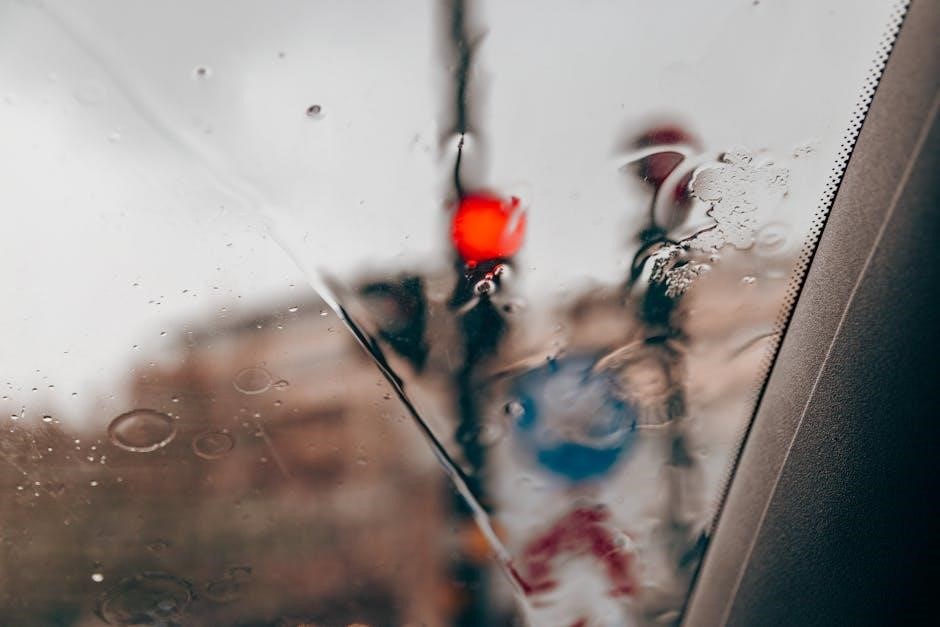
2.4 Laminated Glass

Laminated glass is a popular choice for static caravans due to its exceptional safety and security features. It is constructed by sandwiching a tough interlayer between multiple panes of glass, which holds the glass together even when broken. This prevents shattering and reduces the risk of injury, making it ideal for caravan windows and doors. Laminated glass also offers excellent noise reduction and UV protection, blocking up to 99% of harmful ultraviolet rays. Its durability and resistance to impact make it a practical option for caravan owners seeking enhanced security. While it is slightly heavier and more expensive than standard glass, the added benefits of safety and energy efficiency make it a worthwhile investment for many. It is particularly recommended for caravans located in areas prone to vandalism or extreme weather conditions.
2.5 Toughened Glass
Toughened glass, also known as tempered glass, is a highly durable and safety-focused option for static caravan windows. It is up to five times stronger than standard glass and withstands significant impact without shattering. When broken, it fragments into small, blunt pieces, reducing the risk of injury. This makes it an excellent choice for caravan doors and windows, especially in areas prone to harsh weather or accidental damage. Toughened glass is also thermally resistant, making it ideal for withstanding extreme temperature changes. While it is more expensive than single glazing, its strength and safety benefits justify the cost. It is widely used in modern caravans for its reliability and ability to enhance both security and energy efficiency. Regular maintenance, such as sealing, ensures its longevity and performance over time.
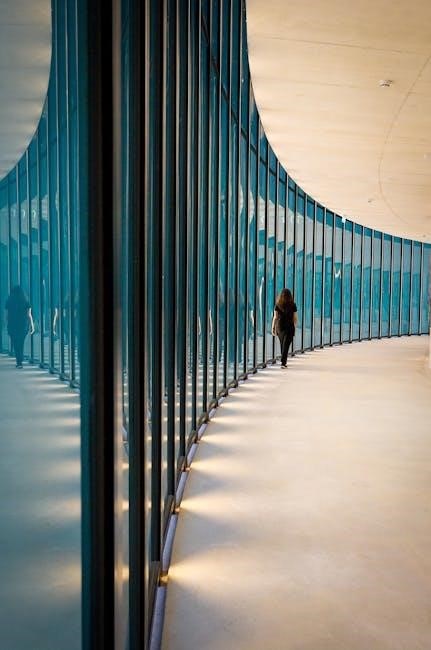
Maintenance and Care of Static Caravan Windows
Regular maintenance ensures static caravan windows remain clear and functional. Clean glass, check air vents, and address condensation promptly. Proper sealing prevents leaks and extends window longevity effectively.
3.1 Cleaning Tips for Caravan Windows
Regular cleaning is vital for maintaining clear visibility and preventing grime buildup on static caravan windows. Use a microfiber cloth and a mixture of water with a mild detergent to avoid streaks. Avoid harsh chemicals or abrasive materials that could scratch the glass. For tougher stains, a vinegar-based solution can be effective. Always clean in a shaded area to prevent water spots from forming due to direct sunlight. Additionally, ensure window seals and frames are clean to maintain proper function. Regularly inspect and clean air vents to ensure proper ventilation, which helps reduce condensation. By following these tips, you can keep your caravan windows sparkling and ensure optimal visibility for a comfortable living experience;

3.2 Addressing Condensation Issues
Condensation is a common issue in static caravans, often caused by moisture buildup from cooking, showering, or breathing. To address this, ensure good ventilation by opening windows slightly or using air vents. Regularly check and clean air vents to ensure proper airflow. Using moisture-absorbing products like silica gel or dehumidifiers can help reduce humidity. Insulate windows during colder months to minimize temperature differences that cause condensation. Addressing leaks or water ingress is crucial, as they can exacerbate condensation. Regular maintenance of window seals and frames can prevent moisture from entering. By taking these steps, you can reduce condensation, prevent mold growth, and maintain a comfortable living environment in your static caravan.
3.3 Sealing and Re-sealing Windows
Proper sealing of static caravan windows is crucial for maintaining weatherproofing and energy efficiency. Over time, window seals can degrade due to age, weather, or wear, leading to drafts or water ingress. To re-seal windows, inspect the existing seals for cracks or gaps. Clean the area thoroughly before applying a new bead of silicone sealant or specialized caravan window sealant. Ensure the surface is dry and free of dirt for optimal adhesion. For more severe damage, consider replacing the entire seal or consulting a professional. Regularly checking and re-sealing windows can prevent costly repairs and maintain the comfort of your caravan. Proper sealing also helps reduce noise and improves insulation, ensuring a cozy and secure living space.
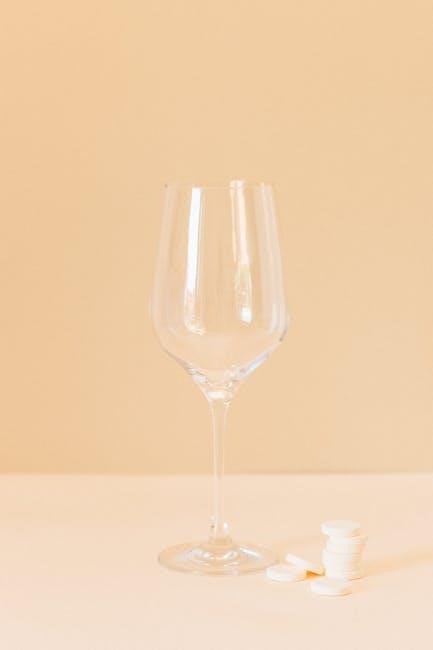
Safety Features of Static Caravan Glass
Laminated glass holds together on impact, reducing injury risks, while toughened glass shatters safely. Emergency exit windows ensure quick evacuation, enhancing overall caravan safety and occupant protection.
4.1 Laminated Glass for Safety
Laminated glass is a critical safety feature in static caravans, designed to hold together upon impact, reducing the risk of sharp shards causing injury. Constructed with multiple layers bonded by a protective interlayer, it remains intact even when broken, preventing dangerous fragments from dispersing. This makes it ideal for windows and doors, ensuring occupant safety during accidents or break-ins. Its durability and resistance to shattering also enhance security, minimizing potential hazards. Laminated glass is particularly beneficial in mobile environments like caravans, where safety and structural integrity are paramount. By maintaining its structure, it protects occupants from harm and prevents external elements from entering the caravan. This feature is indispensable for ensuring a secure and safe living space in static caravans.
4.2 Toughened Glass for Durability
Toughened glass, also known as tempered glass, is a highly durable option for static caravan windows. It is manufactured through a heat-treating process that increases its strength by 4-5 times compared to regular glass. This makes it more resistant to impacts and less likely to break under stress. When toughened glass does break, it shatters into small, blunt fragments, reducing the risk of injury. In static caravans, this durability is essential due to the constant movement and exposure to various environmental conditions. Toughened glass provides excellent resistance against wind pressure and temperature fluctuations, ensuring long-lasting performance. Its enhanced strength also improves security, making it harder for potential intruders to break through. Overall, toughened glass is a reliable choice for static caravan owners seeking both safety and durability.
4.3 Emergency Exit Windows
Emergency exit windows are a critical safety feature in static caravans, designed to provide a quick escape route in case of an emergency. These windows are typically fitted with toughened or laminated glass, which is shatter-resistant and holds together upon impact, reducing the risk of injury. They are strategically positioned to ensure easy access and are often larger than standard windows to facilitate a swift exit. Proper installation and maintenance are essential to ensure these windows function correctly when needed. Regular checks should be performed to confirm that the windows open smoothly and are free from obstructions. Additionally, cleaning the glass regularly ensures clear visibility, which is vital in emergency situations. Emergency exit windows not only enhance safety but also provide peace of mind for caravan occupants, knowing they have a reliable means of escape if necessary.
4.4 Security Film for Glass
Security film for glass is a protective layer applied to enhance the safety and durability of static caravan windows. Designed to hold shattered glass fragments together, it prevents dangerous sharp edges and reduces the risk of injury. This film is particularly useful for laminated and toughened glass, adding an extra layer of protection against break-ins or accidental damage. It also provides UV protection, reducing fading of interior furnishings and minimizing glare. Security film is a cost-effective solution to improve the overall safety of caravan glass without compromising visibility. Regular maintenance, such as cleaning, ensures the film remains effective. By installing security film, caravan owners can enjoy enhanced peace of mind, knowing their windows are more secure and resistant to potential hazards.
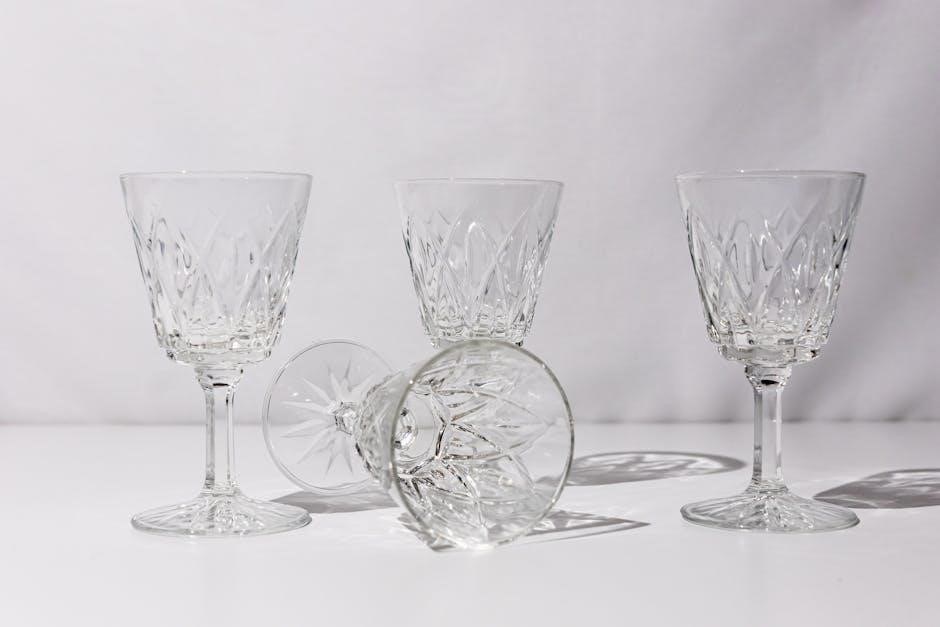
Energy Efficiency and Glass
Energy-efficient glass solutions, like double and triple glazing, significantly reduce heat loss in winter and prevent heat gain in summer, enhancing comfort and lowering energy consumption in static caravans.
5.1 How Glass Affects Heating and Cooling
Glass plays a crucial role in regulating the temperature inside static caravans. Single glazing offers minimal insulation, allowing heat to escape in winter and enter in summer. Double and triple glazing, however, significantly reduce heat transfer, keeping interiors warmer in cold weather and cooler in hot conditions. This reduces the need for heating and cooling systems, lowering energy consumption. Laminated and toughened glass further enhance thermal performance by providing additional insulation and durability. Proper glass selection balances natural light with thermal regulation, ensuring comfort year-round. Modern glass technologies, such as low-E coatings, reflect radiant heat rather than absorbing it, optimizing energy efficiency. By choosing the right glazing, static caravan owners can maintain a stable indoor climate while minimizing energy costs.
5.2 Double Glazing vs. Triple Glazing
Double glazing and triple glazing are popular choices for static caravans, each offering distinct benefits. Double glazing consists of two glass panes separated by a gas-filled gap, providing excellent thermal insulation and noise reduction. It is cost-effective and widely used due to its balance of performance and affordability. Triple glazing, on the other hand, features three glass panes, offering even greater energy efficiency and soundproofing. While triple glazing is more expensive to install, it significantly reduces heat loss in colder climates and minimizes condensation. Both options enhance comfort, but triple glazing is ideal for extreme weather conditions. The choice between them depends on budget, climate, and personal preference for energy savings versus initial cost.
5.3 Solar Reflective Glass
Solar reflective glass is a cutting-edge solution designed to minimize heat gain in static caravans by reflecting solar radiation. This innovative glass features specialized coatings or tints that reduce the absorption of UV and infrared rays, keeping interiors cooler. It is particularly beneficial for caravans exposed to direct sunlight, as it helps maintain a comfortable temperature without relying heavily on air conditioning. Additionally, solar reflective glass reduces glare and prevents fading of upholstery and furnishings caused by UV exposure. While it may slightly reduce natural light entry, it offers significant energy-saving benefits. This technology is ideal for caravan owners seeking to enhance energy efficiency and comfort, especially in warmer climates. By reflecting solar energy, it helps balance thermal regulation and reduces the need for additional cooling systems.
Replacement and Repair of Static Caravan Glass
Replacement and repair of static caravan glass are crucial for maintaining structural integrity and safety. Addressing damage or wear promptly prevents leaks and security risks. Professional services ensure durability and efficiency.
6.1 When to Replace Your Windows
Knowing when to replace static caravan windows is vital for maintaining comfort and safety. Signs include persistent condensation, damaged seals, or broken glass. Addressing these issues promptly prevents further damage and ensures energy efficiency. Replacing windows can also enhance security and reduce maintenance costs over time. Professional assessment is recommended to determine the best course of action.
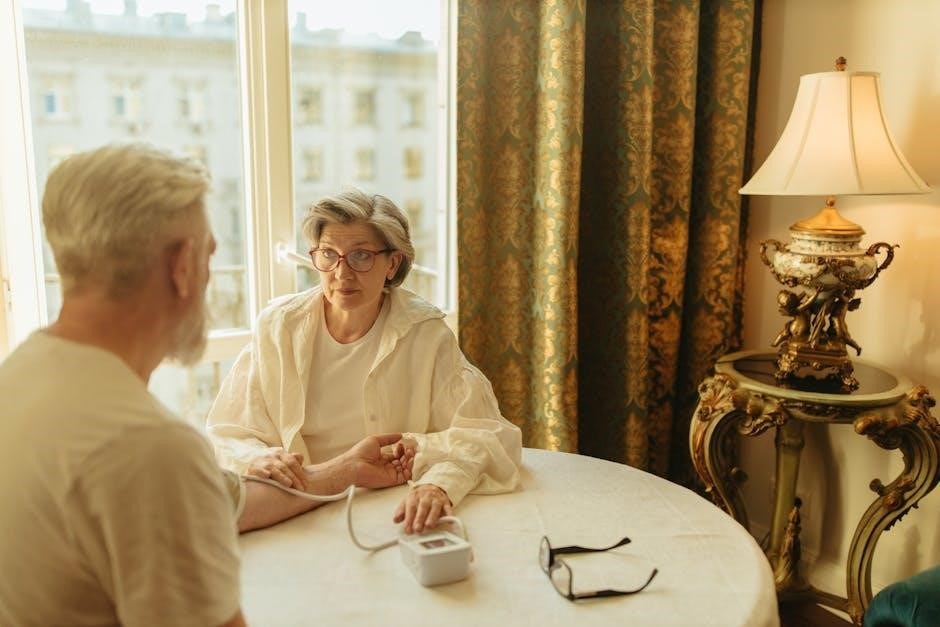
6.2 DIY vs. Professional Replacement
Deciding between DIY and professional window replacement in static caravans depends on your expertise and the extent of the work. DIY can save costs but may pose risks if not done correctly, potentially leading to leaks or security vulnerabilities. Professional replacement ensures high-quality materials and proper installation, especially for complex tasks like double glazing. While DIY might be suitable for minor repairs, professionals are recommended for major replacements to guarantee safety and longevity. Weighing the pros and cons of each option is crucial to make an informed decision that balances cost, convenience, and quality.
6.3 Cost of Replacing Static Caravan Glass

The cost of replacing static caravan glass varies depending on factors like window size, glazing type, and installation complexity. Single glazing is generally cheaper, while double or triple glazing, laminated, or toughened glass can significantly increase expenses. On average, a single window replacement might cost between £100 to £300, but prices can rise for larger or specialized units. Professional installation adds labor costs, potentially doubling the total expense. DIY kits are more affordable but require skill and time. Additional features like security film or solar reflective glass further inflate prices. Budgeting extra for potential frame repairs or sealing is wise. Overall, balancing quality, durability, and budget is key to making a cost-effective decision for static caravan glass replacement.
Future Trends in Static Caravan Glass

Future trends include smart glass technology for temperature control and self-cleaning glass for low maintenance. Innovations like laminated and toughened glass enhance safety and durability, while security films add protection.
7.1 Smart Glass Technology
Smart glass technology is revolutionizing static caravan windows by offering adaptive opacity control. Using electric currents, the glass transitions from transparent to opaque, providing privacy and UV protection. This innovation enhances energy efficiency by regulating heat transfer, reducing the need for blinds. Integration with smart home systems allows users to control the glass via mobile apps. Future advancements may include self-tinting features and improved thermal insulation. This technology not only modernizes caravans but also aligns with eco-friendly trends, making it a desirable upgrade for modern caravan owners seeking convenience and sustainability.
7.2 Self-Cleaning Glass
Self-cleaning glass is an emerging trend in static caravan glazing, offering a low-maintenance solution for caravan owners. This innovative technology features a hydrophobic coating that repels water and dirt, reducing the need for frequent cleaning. The glass stays clear and streak-free, even in harsh weather conditions, ensuring unobstructed views. This advancement is particularly beneficial for caravans exposed to outdoor elements, as it minimizes the impact of rain, dust, and UV rays. Self-cleaning glass also reduces the environmental impact by lowering water and cleaning product usage. While still a developing technology, it promises to enhance both functionality and aesthetics in static caravans, making it a promising upgrade for future models. Its durability and ease of maintenance make it an attractive option for modern caravan enthusiasts seeking convenience and sustainability.
Static caravan glass plays a vital role in comfort, safety, and energy efficiency. Advances like double glazing and self-cleaning technologies enhance durability and aesthetics, ensuring a modern, secure, and sustainable living experience.
8.1 Summary of Key Points
This guide highlights the importance of glass in static caravans, covering types like single, double, and triple glazing, as well as laminated and toughened glass. Maintenance tips, such as cleaning and addressing condensation, ensure longevity. Safety features like laminated and toughened glass, emergency exits, and security films enhance protection. Energy efficiency is improved through advanced glazing and solar reflective glass. Replacement options, including DIY vs. professional services, and costs are discussed. Future trends like smart and self-cleaning glass promise innovation. By understanding these aspects, caravan owners can make informed decisions to enhance comfort, security, and sustainability, ensuring their static caravan remains a enjoyable and safe retreat;
8.2 Final Thoughts on Static Caravan Glass
Static caravan glass plays a pivotal role in enhancing comfort, safety, and energy efficiency. With advancements in technology, options like double and triple glazing, laminated, and toughened glass offer superior durability and thermal performance. Regular maintenance, such as cleaning and addressing condensation, ensures longevity. Safety features like emergency exits and security films provide peace of mind. As energy efficiency becomes a priority, solar reflective glass and advanced glazing solutions are increasingly popular. Whether opting for DIY repairs or professional services, investing in high-quality glass solutions is essential for a secure and enjoyable caravan experience. By embracing these innovations, static caravan owners can create a sustainable, comfortable, and stylish retreat for years to come.
